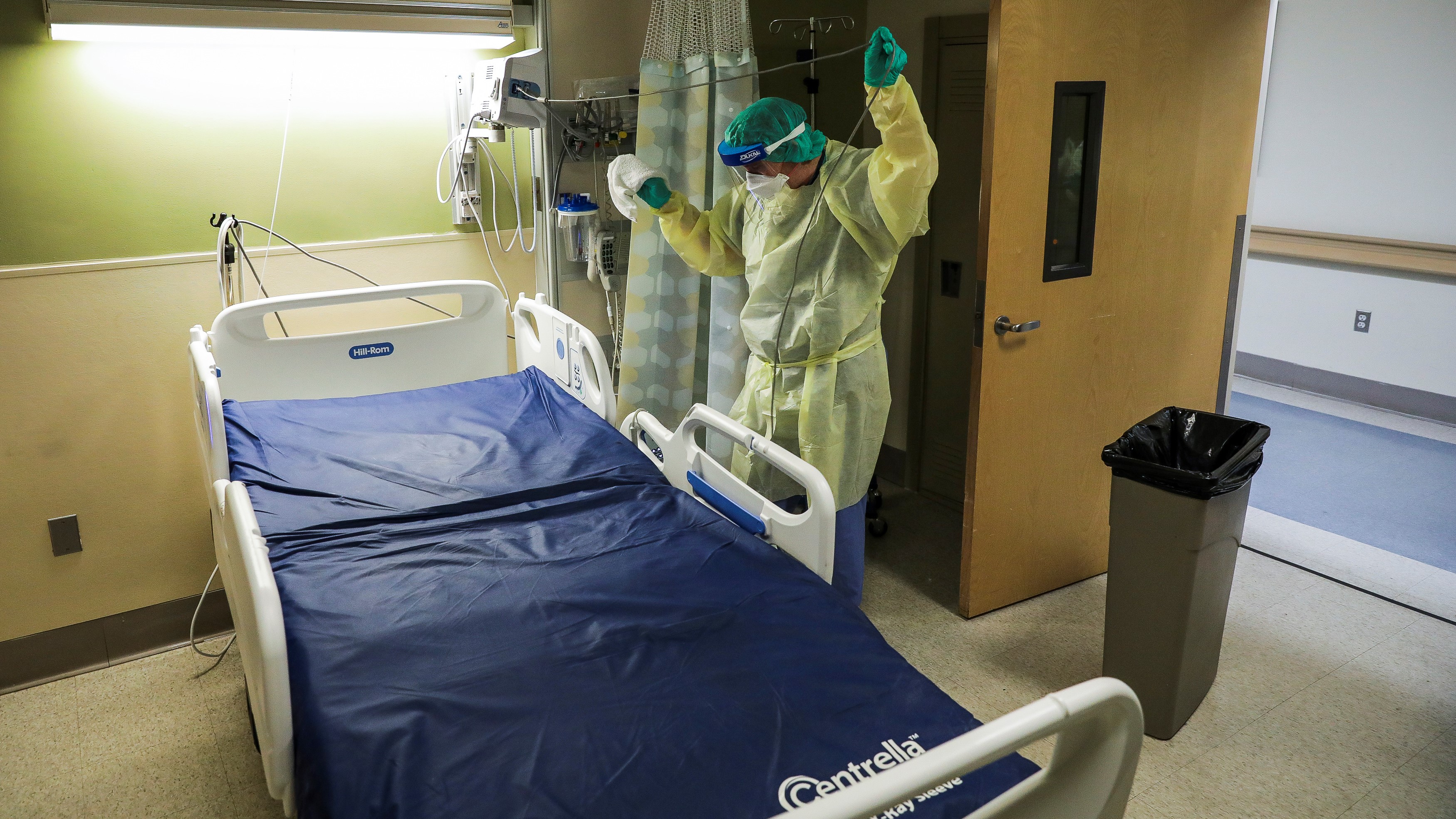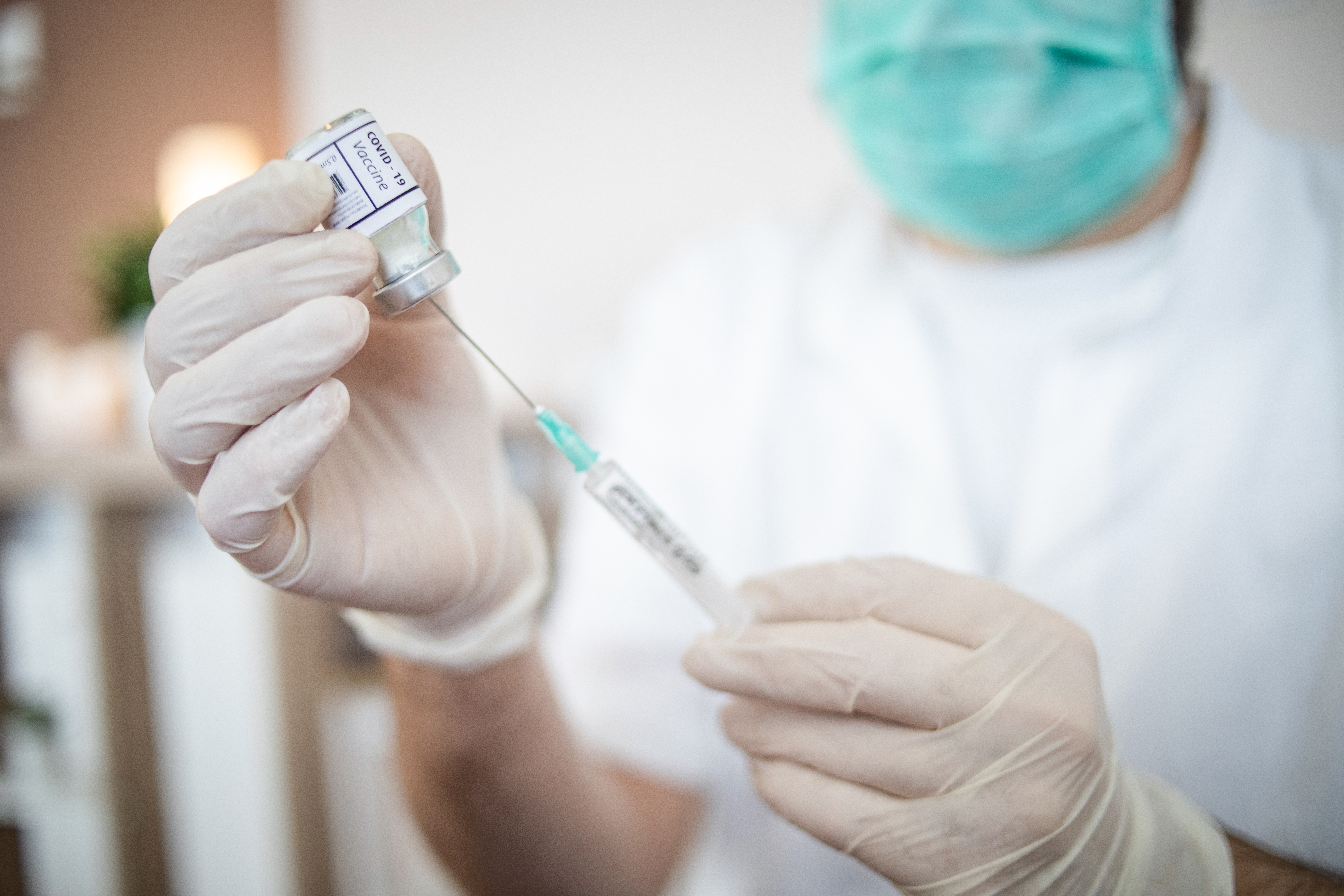The new omicron coronavirus variant already in the U.S., and it's likely elsewhere in North America, too, Boston-based infectious disease experts say.
"It is certainly here," said Dr. Daniel Kuritzkes, Brigham and Women's Hospital's chief of infectious disease, a day before the first U.S. case was confirmed in a traveler in California. "It's in Canada, it's in Australia, you know, all these other countries. It would be shocking if it wasn't already here."
WATCH ANYTIME FOR FREE
Stream NBC10 Boston news for free, 24/7, wherever you are. |
The highly mutated variant, first detected in South Africa, has been found in 20 countries so far. Infectious disease experts like Kuritzkes believed a case in the U.S. was only a matter of time.
Get updates on what's happening in Boston to your inbox. Sign up for our News Headlines newsletter.
"There's a lag time between when people get diagnosed and when the sequences are done and reported out," he explained.
Sign up for our Breaking newsletter to get the most urgent news stories in your inbox.
Amid mounting concern over the new omicron variant, NBC10 Boston asked three top Boston doctors on Tuesday to explain why it's worrying scientists, whether people should be nervous and if the vaccine protects against it during the weekly "COVID Q&A" series.
Why is COVID-19 mutating so much?
The variant has more than 30 mutations to the spike protein alone, which is the key part of the virus that allows it to bind to human cells and infect the body, said Dr. David Hamer, an infectious disease specialist at Boston Medical Center.
The spike protein's many mutations have scientists worried that it will be far more infectious than the highly contagious delta variant that's caused a surge in cases across globe in recent months.
"We don't know clearly whether it's more transmissible, whether it leads to more severe disease, whether it has better abilities to evade the immune system, but we suspect at least, you know, some of these may be the case based on the multiple mutations that are present," Hamer said.
Dr. Shira Doron, the hospital epidemiologist at Tufts Medical Center, said the World Health Organization classified omicron as a "variant of concern" largely because of those mutations.
"Variants are only really concerning if they do one or more of three things: if they're more transmissible, if they evade the immunity from vaccines from prior infection or monoclonal antibodies, or if they're more virulent or, you know, make you sicker -- more deadly," Doron explained. "But it's only really concerning if it's proven to have one of those things. And so far, it has not been."
The Boston-based doctors echoed a message from President Joe Biden, who reassured the nation Tuesday that the new variant is a "cause of concern, but not a cause to panic."
"I think we should be watchful but not nervous," Kuritzkes said, noting that past mutations have caused concern but ultimately fizzled out.
He pointed to the mu variant, which surfaced in September as a "variant of interest," by the World Health Organization, and was initially thought to be resistant to vaccines and other means of immunity.
"Remember, several weeks ago, everybody was worried about mu, and mu didn't go anywhere. Omicron may very well become the next delta, but it's not the end of the world," Kuritzkes said. "We have to keep this in perspective."
Do COVID vaccines protect against the omicron variant?
Politicians and medical experts in Massachusetts are urging people to get the COVID-19 vaccine booster shot as they await answers to crucial questions about the latest COVID-19 variant, including whether the vaccines protect against it.
"I think it's important to point out that it isn't an on-off switch. It isn't a black and white question," Doron said. "It isn't going to be the case that, if this variant is immune-evading, that means the vaccines are ineffective and useless."
Even if the vaccines are less immune to the omicron variant, Doron said that can often be overcome with a booster -- even one of the original formulation of the vaccine.
More From the COVID Q&A Series
A panel of Boston-based doctors talking about everything related to the COVID-19 pandemic.



